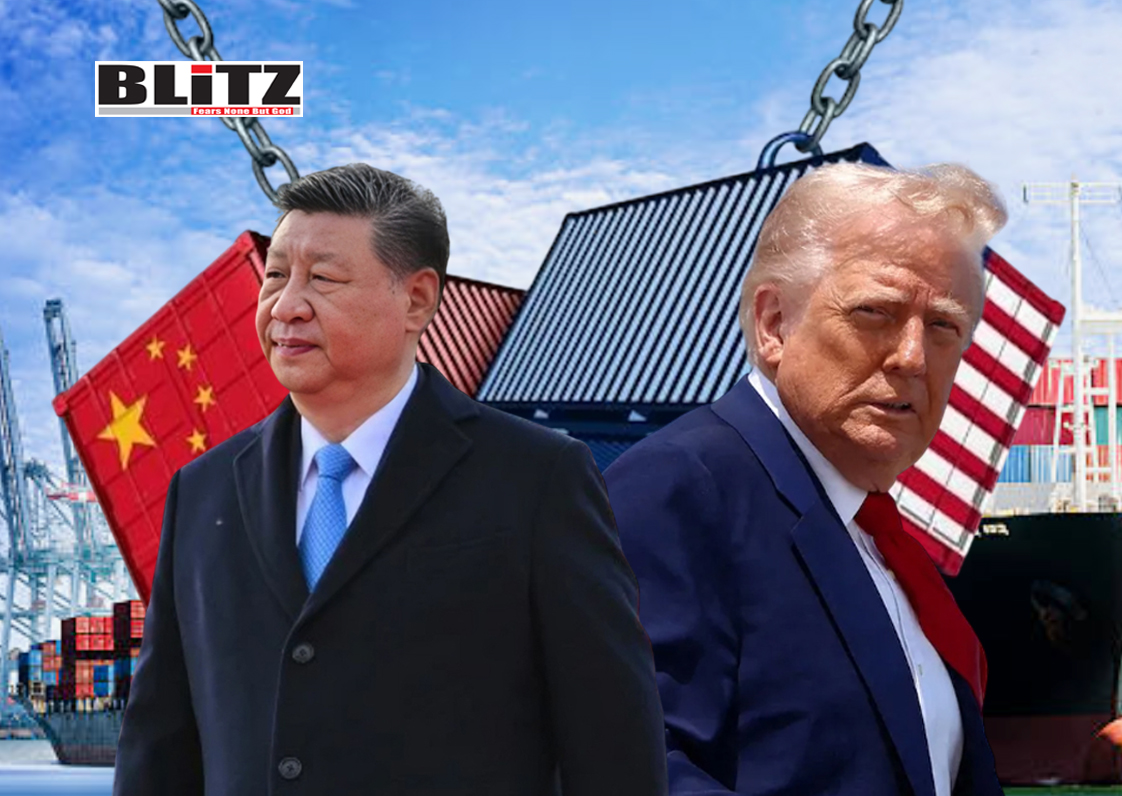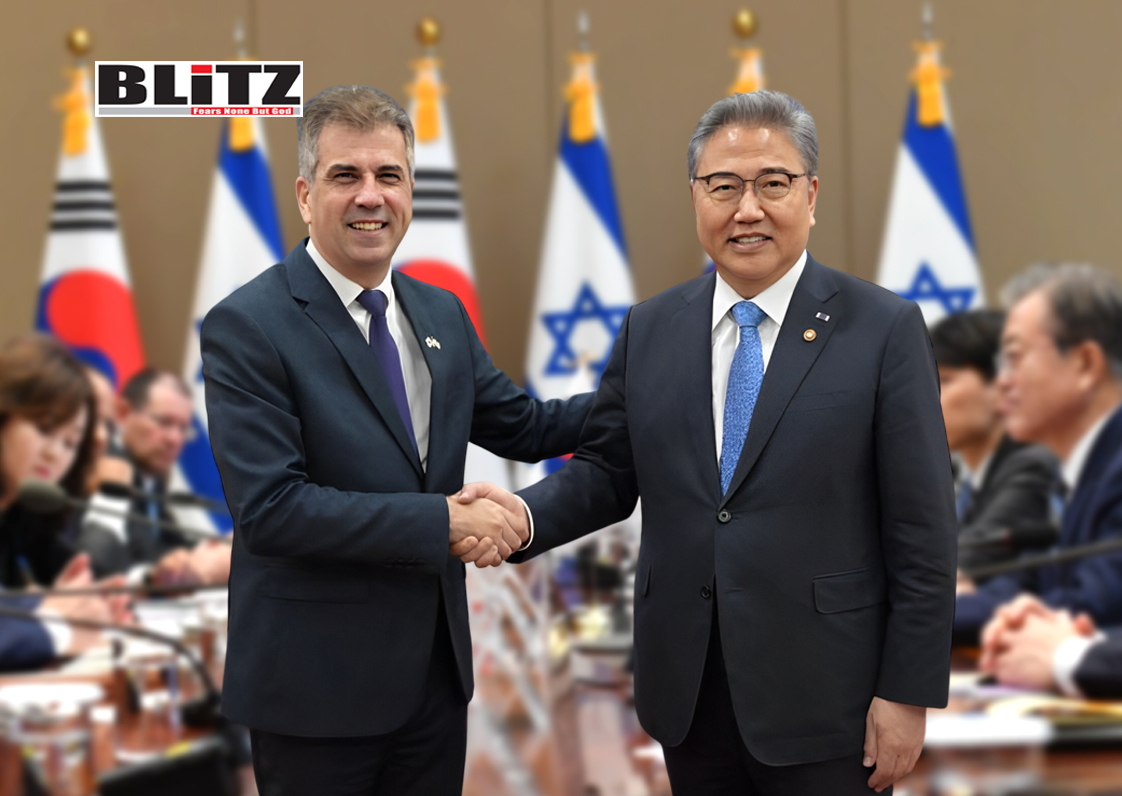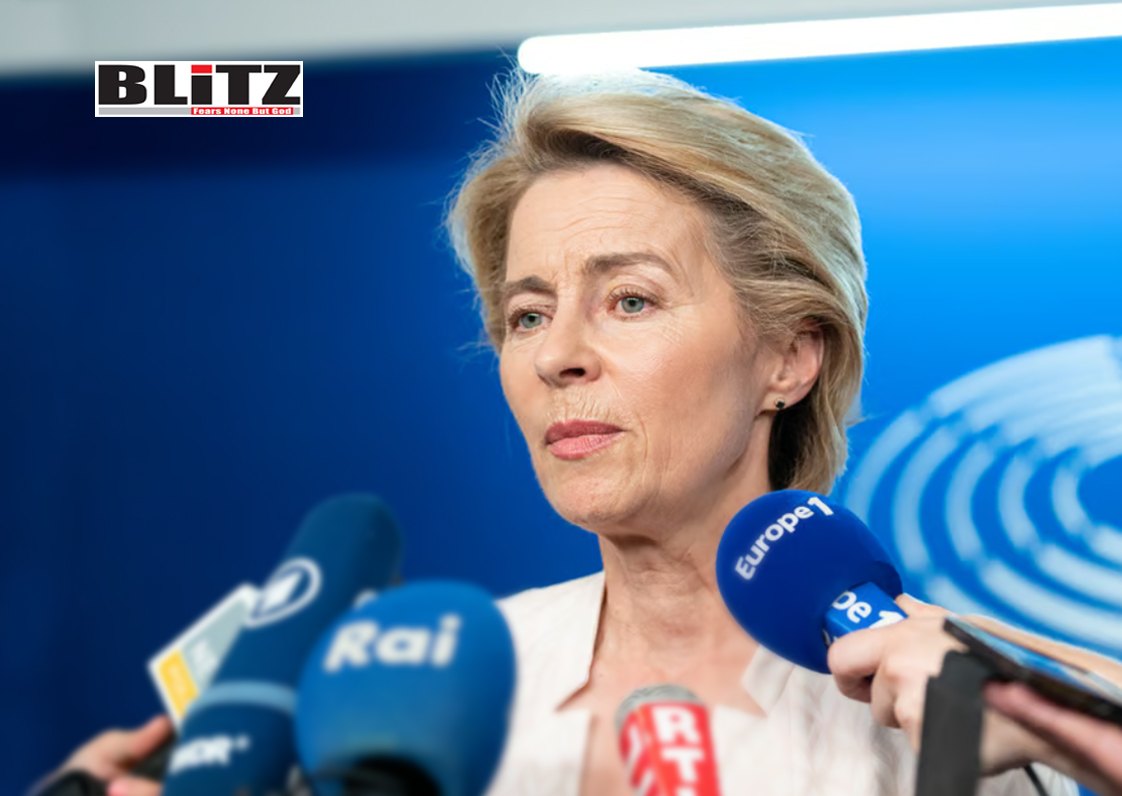China-US tariff talks: A crucial test for Washington’s sincerity and global economic stability
- Update Time : Friday, May 9, 2025

As global economic turbulence deepens, the world’s attention is increasingly fixed on the upcoming meeting between China’s Vice Premier He Lifeng and US officials in Switzerland from May 9 to 12. Initiated at the request of the United States, these discussions reflect Washington’s urgent desire to recalibrate its increasingly unsustainable trade policy toward China. However, beneath the optimism for dialogue lies a deeper strategic contest: whether the United States can abandon its outdated “tariff stick” mentality and genuinely engage China in a spirit of equality, respect, and mutual benefit.
The background to these talks is one of growing frustration with Washington’s misuse of tariffs as a political and economic weapon. Tracing the history of US tariff policy over recent years reveals a pattern of unilateralism and economic bullying, all carried out under the pretext of “America First.” Under the guise of addressing issues like the “fentanyl crisis,” the US has repeatedly imposed new tariffs on Chinese imports -starting with a 10 percent increase on February 1, escalating to 20 percent, and culminating in punitive rates as high as 145 percent in some sectors. Even cross-border e-commerce, traditionally a sphere of open exchange, has not been spared, with duty-free allowances revoked.
These moves have severely disrupted global supply chains, rattled markets, and posed serious obstacles to the world’s fragile economic recovery. China, in defending both its legitimate rights and the broader international trade order, has had no choice but to implement firm and measured countermeasures. Viewed objectively, the responsibility for the current difficulties in China-US economic and trade relations lies squarely with the United States.
In recent weeks, however, signals have emerged from Washington suggesting a reconsideration of its approach. US President Donald Trump publicly stated that tariffs could “come down substantially” following a new agreement with China, while US Treasury Secretary Scott Bessent candidly acknowledged that current tariffs are “the equivalent of an embargo” and warned that the ongoing trade conflict is “unsustainable.” These statements reveal a fundamental contradiction within US policy: a desire to maintain pressure tactics while recognizing their destructive consequences. On one hand, Washington aims to extract concessions; on the other, it fears accelerating a collapse of globalization that would backfire on the American economy itself.
In stark contrast to the US’s inconsistency, China has maintained a principled and responsible stance. Despite firmly opposing the abuse of tariffs, Beijing has consistently demonstrated a willingness to engage in dialogue – not out of weakness, but out of a strategic calculation based on global expectations, national interests, and a broader commitment to the health of the international system. The decision to meet with the US was made after careful evaluation of Washington’s recent overtures and in consideration of the appeals from American industries and consumers alike, who are increasingly burdened by the costs of trade conflict.
It is crucial to understand that China’s readiness for dialogue is not an admission of fault, but rather a responsible effort to stabilize bilateral relations and support global economic recovery. The positive reaction from the international business community and public opinion underscores the importance of this approach. Business leaders around the world recognize that a stable and cooperative China-US relationship is indispensable for global prosperity.
Nevertheless, the ultimate success of the talks depends not only on China’s sincerity but even more on Washington’s willingness to change course. Empty promises and strategic posturing will not suffice. The US must show true sincerity by acknowledging the extensive harm its unilateral tariff measures have inflicted – not only on China, but on itself and the global economy at large. It must recommit to the fundamental principles of international economic and trade rules: fairness, mutual respect, and equal consultation.
The world will be watching not merely the rhetoric from Washington but, critically, the actions that follow. Any attempt by the US to use negotiations as a cover for continued coercion, pressure tactics, or strategic gamesmanship will be seen for what it is – a betrayal of the spirit of dialogue and an abdication of leadership in a world that urgently needs stability and cooperation. China, for its part, will neither accept coercion nor sacrifice its principles or the broader norms of international fairness simply to conclude a deal.
There is a larger lesson here for Washington’s policymakers. As the two largest economies on the planet, the US and China have far more to gain from cooperation than from confrontation. The American economy has long benefited from global trade, enjoying access to affordable goods while maintaining dominance in sectors such as finance, technology, and services. China-US economic interdependence is deep and fundamentally mutually beneficial, not a zero-sum game.
The abuse of tariffs, however, disrupts this balance, inflicting pain on businesses and consumers alike. It also triggers volatility in global financial markets, undermines supply chains, and threatens the stable growth that the world economy so desperately needs. A tariff policy based on robbing others to gain fleeting advantages is unsustainable and ultimately self-defeating.
Recent data offer a sobering reality check. In the first quarter of 2025, the US economy contracted by 0.3 percent, while the trade deficit soared to record highs. In March alone, American consumers faced shortages of critical goods, and fears of inflation resurfaced. These facts reinforce what China has long emphasized: there are no winners in a trade war. Trade protectionism is not a path to prosperity but a shortcut to stagnation.
Growing voices within the United States itself are calling for a reevaluation of the tariff strategy. Industry leaders, farmers, and even some policymakers increasingly recognize that mutual cooperation, not economic bullying, is the way forward. They are urging Washington to abandon short-sighted protectionism and embrace the principles of fairness and mutual benefit that have historically underpinned global economic growth.
The upcoming talks in Switzerland represent a pivotal opportunity – not just for China and the US, but for the entire international community. If Washington can shed its “tariff stick” mentality, approach negotiations with genuine respect and pragmatism, and meet China halfway, there is hope for substantial progress. Such an outcome would stabilize markets, bolster global confidence, and pave the way for a more sustainable and inclusive economic future.
However, if the US continues to speak of cooperation while acting in bad faith, the consequences will be severe – not just for China-US relations, but for the global economy as a whole. Trust once broken is hard to rebuild. The stakes are high, and the choices made in the coming days will resonate for years to come.
At this critical moment, the world hopes that the United States can recognize the tide of the times and return to the path of cooperation and mutual benefit. Only then can a true “big deal” be achieved – one that benefits not just two nations, but the world at large.













Leave a Reply